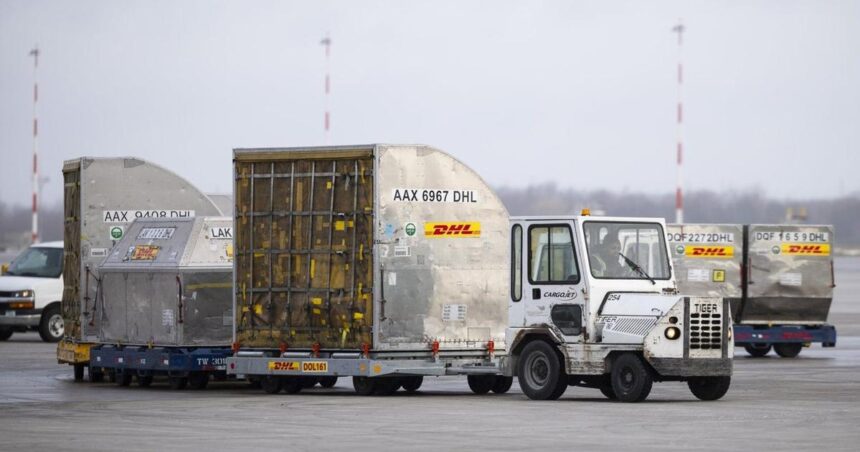In a significant breakthrough after weeks of labor tension, DHL Express Canada workers have voted to ratify a new collective agreement, effectively ending a strike and lockout that had threatened to disrupt crucial supply chains across the country. The resolution comes just as businesses were bracing for potential delivery delays heading into a busy shipping season.
The agreement, approved by a majority of Unifor members this week, delivers substantial gains for approximately 1,200 workers, including couriers, warehouse staff, and administrative personnel who had been advocating for improved wages and working conditions since negotiations began earlier this year.
“This agreement represents a hard-fought victory for workers who stood firm in their demands for fair compensation that reflects their essential role in Canada’s logistics network,” said Unifor National President Lana Payne in a statement following the ratification vote.
The new four-year contract includes wage increases averaging 15.5% over the term, with retroactive pay dating back to April when the previous agreement expired. Workers will also see enhanced benefits, improved scheduling provisions, and stronger protections against excessive overtime—key issues that had driven workers to picket lines at facilities across major Canadian urban centers.
DHL Express Canada, a subsidiary of the global logistics giant Deutsche Post DHL Group, handles millions of international shipments annually for Canadian businesses ranging from small enterprises to major corporations. The company’s services have become increasingly vital as cross-border e-commerce has expanded dramatically in recent years.
Industry analysts from the Canadian business sector note that the strike’s resolution comes at a critical time, as many retailers are already preparing for year-end shipping demands. A prolonged work stoppage could have severely impacted businesses that rely on international shipping for both supplies and finished products.
“The potential ripple effects of this dispute extended far beyond DHL’s immediate operations,” explains Dr. Amrita Singh, supply chain management professor at the University of Toronto. “Many Canadian exporters and importers were already developing contingency plans with alternative carriers, which would have meant significant logistical challenges and increased costs.”
Several Canadian manufacturing associations had expressed concern about the dispute’s potential impact on just-in-time inventory systems, particularly for automotive and pharmaceutical industries that rely on specialized international components.
Both sides expressed relief at reaching the agreement. DHL management emphasized their commitment to maintaining Canada’s position in global trade networks, while union representatives highlighted how collective action had secured meaningful improvements for workers.
“This agreement demonstrates what’s possible when workers stand together,” said Len Poirier, Unifor’s National Secretary-Treasurer, who led the negotiating team. “Our members perform demanding work that keeps Canadian businesses connected to global markets, and this contract better reflects that value.”
The agreement also addresses several non-monetary issues, including enhanced safety protocols for drivers, improved training opportunities, and provisions for technological change as the company continues to modernize its operations.
As operations return to normal across DHL’s Canadian network, attention now turns to how quickly the company can clear any backlog that developed during the work stoppage. Business leaders across Canada’s economic sectors will be watching closely to see if there are any lingering effects on international shipping reliability.
As global supply chains continue to evolve in an increasingly interconnected world, the resolution of this labor dispute raises a broader question: How can logistics companies balance the pressures of competitive global markets with the need to provide sustainable, fair working conditions for the employees who keep these essential services running?














